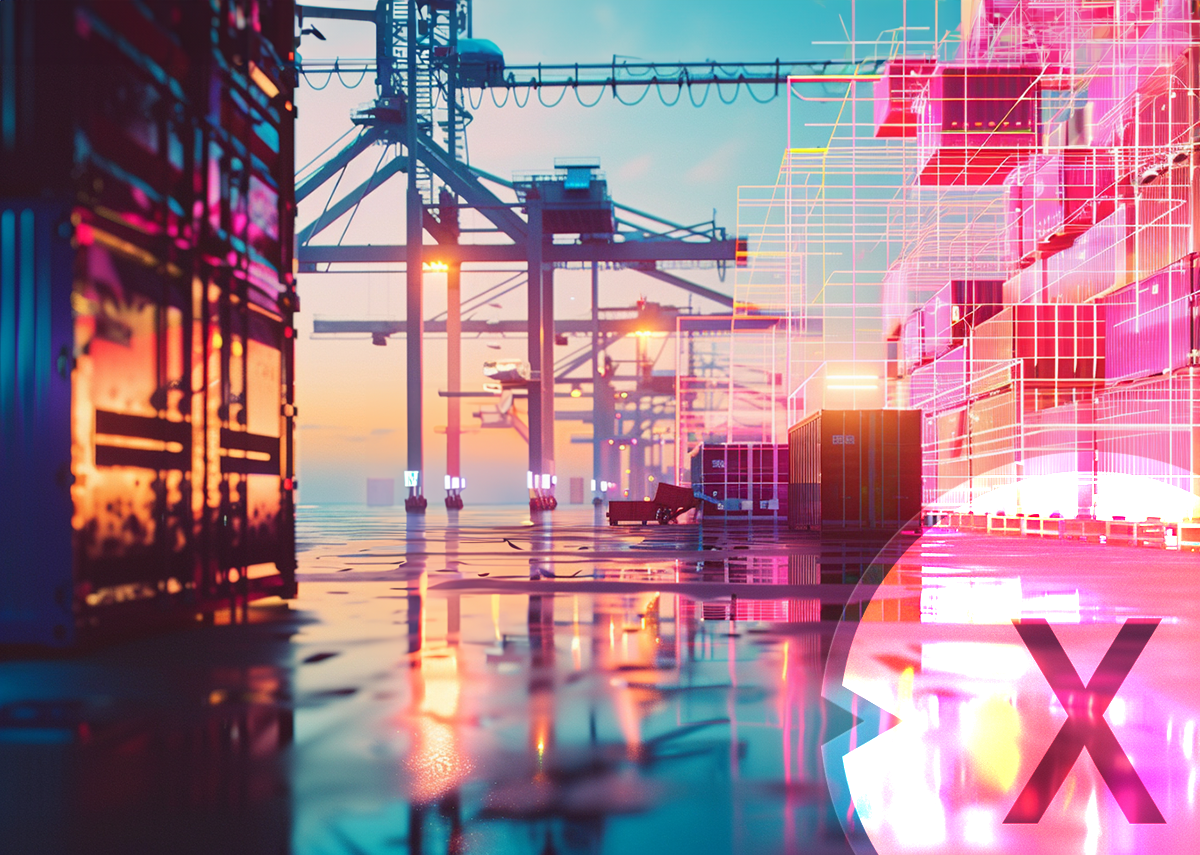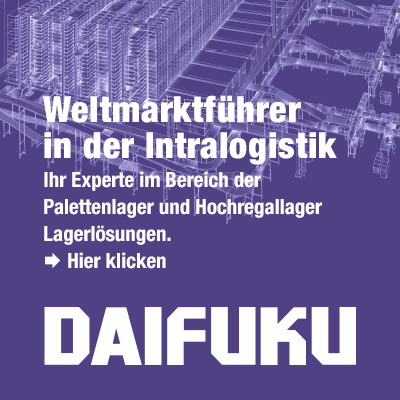Nearshoring & Collaborative Platforms: Global supply chains have developed significantly in recent years
Language selection 📢
Published on: October 9, 2024 / update from: October 9, 2024 - Author: Konrad Wolfenstein

Nearshoring & Collaborative Platforms: Global supply chains have developed significantly in recent years - Image: Xpert.Digital
🚛🌐🤝📈 Global supply chains have evolved significantly in recent years, and several key trends are emerging
🔧 Technological innovations
Artificial intelligence (AI) and machine learning
These technologies are critical for automating processes, making forecasts and identifying trends. You improve supply chain performance through more accurate demand planning and resource allocation.
Blockchain technology
This technology provides transparency and security in transactions, promoting trust between partners in the supply chain.
Suitable for:
Real-time tracking
The ability to track deliveries in real time is critical to supply chain resilience and enables rapid responses to disruptions.
🌿 Sustainability and resilience
Sustainable supply chains
Companies are increasingly integrating sustainability aspects into their strategies to reduce environmental impact while achieving economic benefits.
Resilience
Given global uncertainties, supply chain resilience is more important than ever. Companies must be able to react flexibly to unforeseeable events.
🔄 Structural changes
Nearshoring
To minimize risks, companies are moving parts of their supply chains closer to their main markets. This reduces dependencies on individual countries and improves responsiveness.
Collaborative platforms
Companies are working more closely together to share data and increase supply chain efficiency.
⚠️ Challenges
Shortage of skilled workers
The shortage of qualified workers is forcing companies to invest in training and automation.
Cybersecurity
With increasing digitalization, protection against cyber attacks is becoming increasingly important.
⚙️🌱💪 Future-proof: Optimizing supply chains for competitive advantage
These trends show that companies must adapt their supply chains to remain competitive. Investments in technology, sustainability and resilience are crucial to successfully mastering future challenges.
📣 Similar topics
- 📈 Technological innovations in global supply chains
- 🤖 AI and Machine Learning: The Future of Automation
- 📦 Blockchain for more transparency in supply chains
- ⏱️ Real-time tracking revolutionizes supply chain resilience
- 🌿 Integrate sustainability into supply chain strategies
- 🛡️ Resilience: Key to managing global uncertainties
- 🌍 Nearshoring: supply chains closer to the market
- 🤝 Collaborative platforms for better efficiency
- 🚀 Skilled labor shortage as a driver for further training and automation
- 🔒 Cybersecurity: Essential protection for digitized supply chains
#️⃣ Hashtags: #TechnologicalInnovation #Sustainability #Resilience #Nearshoring #Cybersecurity
Xpert partner in warehouse planning and construction
📦🌍 Global supply chains: trends and challenges of the modern economy
📡🤖 Technological innovations
The technological revolution is having a profound impact on global supply chains. Artificial intelligence (AI) and machine learning have become essential tools that automate processes, forecast and identify trends. By using these technologies, companies can significantly improve the performance of their supply chains. More precise demand planning and efficient resource allocation make it possible to reduce costs and increase customer satisfaction. For example, AI can be used to detect patterns in large amounts of data that would escape human analysis. This leads to better informed decisions and optimized processes.
Blockchain technology also offers new opportunities for transparency and security in transactions. It promotes trust between supply chain partners by providing immutable and verifiable records of all transactions. This is particularly important at a time when data integrity and traceability are becoming increasingly important. A practical example is tracking products from origin to end consumer, which is particularly crucial in the food and pharmaceutical industries.
Real-time tracking systems allow companies to track their deliveries in real time. This capability is critical to supply chain resilience as it allows for rapid responses to disruptions. This allows companies to act proactively and minimize delivery delays or other problems. Modern sensor technology and the Internet of Things (IoT) play a key role here by continuously providing data about the condition and location of goods.
🌱♻️ Sustainability and resilience
At a time when environmental awareness and social responsibility are becoming increasingly important, companies are increasingly integrating sustainability aspects into their strategies. Sustainable supply chains not only help reduce environmental impacts, but also provide economic benefits. They strengthen the brand image, promote customer loyalty and can save costs in the long term. Companies rely on renewable energies, reduce packaging materials and optimize transport routes in order to reduce their ecological footprint.
Supply chain resilience is more important than ever amid global uncertainties. Companies must be able to react flexibly to unpredictable events such as natural disasters, political unrest or pandemics. A resilient supply chain can better address such challenges and ensure business continuity. Strategies such as diversifying suppliers, stocking critical components and developing emergency plans are essential measures to increase resilience.
🔄🚚 Structural changes
To minimize risk and improve responsiveness, many companies are moving parts of their supply chains closer to their main markets, a process known as nearshoring. This strategy reduces dependence on individual countries and allows companies to react more quickly to market changes. In addition, transport costs can be reduced and delivery times shortened. In Europe, for example, companies are moving production from Asia back to Eastern European countries to be closer to customers and utilize local labor.
Collaborative platforms are also becoming increasingly important. By collaborating more closely and sharing data, companies can increase the efficiency of their supply chains. Such platforms enable better coordination between suppliers, manufacturers and retailers, resulting in optimized processes and reduced costs. They also promote innovation because partners can work together on solutions.
🤔📉 Challenges
The shortage of skilled workers represents a significant challenge. The lack of qualified workers is forcing companies to invest in training and automation. By promoting talent and using technology, companies can partially close this gap and maintain their competitiveness. Employee development programs and collaborations with educational institutions are ways to meet the need for qualified personnel.
With increasing digitalization, protection against cyber attacks is becoming increasingly important. Cybercriminals are increasingly targeting supply chains to exploit vulnerabilities. Companies must therefore invest in cybersecurity measures to protect their data and systems and maintain the trust of their partners and customers. This includes implementing security protocols, regular audits and training employees in the area of IT security.
🏆🚀 Stay competitive
These trends clearly show that companies must adapt their supply chains in order to remain competitive. Investments in technology, sustainability and resilience are crucial to successfully mastering future challenges. It is essential that companies act proactively and develop innovative strategies to succeed in an ever-changing global landscape.
In addition to the trends already mentioned, there are other factors that influence the design of supply chains. Globalization continues to play an essential role, although it is affected by protectionism and trade conflicts. Companies must therefore find a balance between global opportunities and local challenges. Adapting to different regulatory environments and cultural differences requires flexibility and understanding.
The digitalization of supply chains opens up new opportunities, but also requires significant investments and a cultural change within organizations. Employees need to be trained to use new technologies and processes need to be adapted to take full advantage of digitalization. Change management strategies are crucial to overcome resistance and ensure a successful transformation.
Another important aspect is customer orientation. Customer expectations are changing rapidly and companies need to be able to offer personalized and flexible solutions. This requires agile supply chains that can respond quickly to customer demands. Customers today expect transparency about the status of their orders, fast deliveries and sustainable products. Companies that meet these expectations can gain a competitive advantage.
Finally, maintaining compliance and regulations is a critical factor. Global supply chains are complex and companies must ensure they comply with all relevant laws and regulations to minimize legal risks. This includes not only trade laws, but also environmental standards, labor rights and data protection regulations. Failure to comply can result in significant penalties and reputational damage.
The world of supply chains faces an exciting and challenging future. Companies that are willing to adapt and invest in the right areas will be able to overcome these challenges and strengthen their position in the global market. Integrating technology, focusing on sustainability and resilience, and developing flexible and customer-centric strategies are key to success.
It is clear that transforming supply chains is not an easy undertaking. It requires commitment at all levels of the company, strategic planning and a willingness to invest in new ways. But the rewards are significant: improved efficiency, increased customer satisfaction and a stronger competitive position.
Companies must act now to seize the opportunities and meet the challenges of the modern supply chain landscape. Those who are proactive and innovative will not only survive but thrive in the new era of global trade.
📣 Similar topics
- 🌍 Global supply chains: trends and challenges
- 🤖 Technological innovation as a driver of supply chains
- 🌱 Promote sustainability in the modern supply chain
- 🔗 Blockchain for transparency and security
- 🏗️ Structural changes: Nearshoring as a strategy
- 👥 Collaborative platforms to increase efficiency
- 🚀 Resilience to global uncertainties
- 🛡️ Defending cyberattacks: cybersecurity in supply chains
- 📈 Change management: successfully mastering change
- 🌐 Globalization vs. Local Challenges
#️⃣ Hashtags: #TechnologicalInnovation #Sustainability #Resilience #Supply Chains #Globalization

Xpert.Plus warehouse optimization - high-bay warehouses such as pallet warehouses consulting and planning
We are there for you - advice - planning - implementation - project management
☑️ Smart City & Factory: Industry expert for energetic 5G buildings and halls as well as advice and installation of solar systems
☑️ Xpert.Plus - logistics consulting and logistics optimization
☑️ Industry expert, here with his own Xpert.Digital Industry Hub with over 2,500 specialist articles
I would be happy to serve as your personal advisor.
You can contact me by filling out the contact form below or simply call me on +49 89 89 674 804 (Munich) .
I'm looking forward to our joint project.
Xpert.Digital - Konrad Wolfenstein
Xpert.Digital is a hub for industry with a focus on digitalization, mechanical engineering, logistics/intralogistics and photovoltaics.
With our 360° business development solution, we support well-known companies from new business to after sales.
Market intelligence, smarketing, marketing automation, content development, PR, mail campaigns, personalized social media and lead nurturing are part of our digital tools.
You can find out more at: www.xpert.digital - www.xpert.solar - www.xpert.plus


























